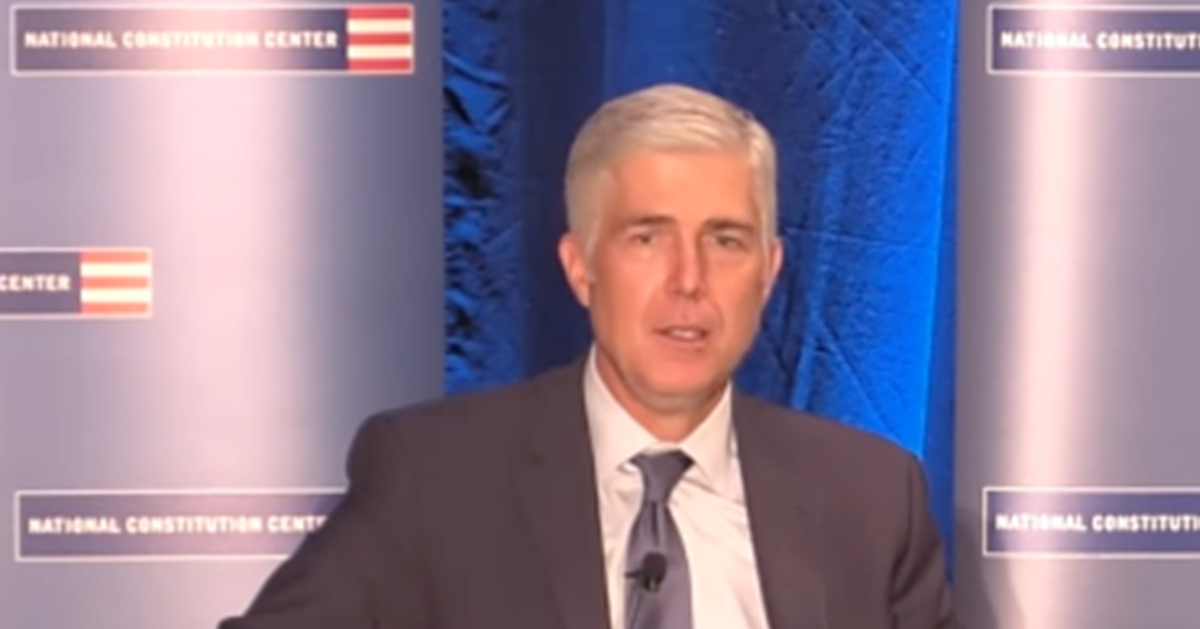Biden's Veto of JUDGES Act Stirs Reactions, Criticism
President Joe Biden's recent veto of a bill designed to increase the number of federal judges has sparked discontent among some of his key allies.
The bill received unanimous approval in the Senate but stumbled in the House, ultimately culminating in a presidential veto and drawing the ire of many, as Fox News reports.
In a display of bipartisanship, Sen. Senator Chris Coons (D-DE) worked collaboratively with Sen. Todd Young (R-IN) to craft the JUDGES Act. The proposed legislation intended to alleviate the growing caseload burden on federal courts by adding 66 federal district judgeships over a span of more than ten years.
The Senate approved the bill in August with unanimous support. This paved the way for a vote in the House, which delayed their decision until after the 2024 election results were finalized.
However, the Republican-controlled House accused Biden of intending to veto the bill as a strategy to obstruct President-elect Trump from appointing new judges.
Senators' Effort to Maintain Nonpartisanship
Coons and Young emphasized that their approach to the bill was rooted in nonpartisanship, ensuring it did not favor any political party. "Senator Young and I took pains to make this a nonpartisan process," Coons stated, highlighting the effort behind the unanimous Senate passage.
Despite the Senate's support, Republicans in the House were apprehensive about potential impacts on judicial appointments under a new administration. As a result, the deliberation process faced significant delays.
The underlying goal of the legislation was to reduce the mounting caseloads within federal courts. Speaker Mike Johnson, (R-LA) acknowledged this need, stating that the bill aimed to "strengthen the efficiency of our judicial system." Despite the Senate's approval, partisan politics clouded its path in the House.
Disappointment Among Biden Allies
Coons expressed his discontent following the veto, stating, "I am disappointed by this outcome." He recognized the years of effort and bipartisan cooperation invested in the bill's formulation. Coons lamented the missed opportunity for progress due to the veto.
The bill's trajectory became more complex as Democratic hopes centered around Kamala Harris, who was the presidential candidate following Biden's withdrawal from the 2024 race.
Democrats anticipated swift action with a favorable White House outcome, but the election results changed the political landscape.
Republican Speaker Mike Johnson pointed out that, initially, Democrats supported the legislation, expecting a Harris presidency. With Biden's office issuing a veto threat, Johnson accused Democrats of blocking the bill "simply because of partisan politics."
Political Dynamics Shift with Election Results
As election results unfolded, the political dynamics surrounding the JUDGES Act shifted. The Republican-controlled House delayed advancing the bill, suspecting Biden's intention to veto it to thwart President-elect Trump’s judicial appointments.
Coons defended the bipartisan origins of the bill, noting it was structured before knowing the 2025 White House occupant. The nonpartisan intention of the act was to allow Congress to pass it without any partisan pressure about future judicial nominations.
While the bill's main purpose was nonpartisan, the post-election political atmosphere amplified partisan rifts. "The Senate did its part by passing the bill unanimously in August," Coons stated, attributing delays to the House's decision to wait for election outcomes.
Legislative Challenges and Future Prospects
The veto highlights the challenges senators face when navigating legislative processes amidst political shifts. Coons' efforts on the bill underscore the importance of bipartisan solutions in addressing systemic issues like federal court backlogs.
The fate of the JUDGES Act now hangs in the balance as legislators consider the next steps. The need for additional federal judges persists, prompting discussions about potential new approaches or modifications to the bill.
In the wake of the veto, bipartisan cooperation remains a crucial element for legislative success. As political landscapes shift, finding common ground remains essential to enact effective policies addressing national challenges.



